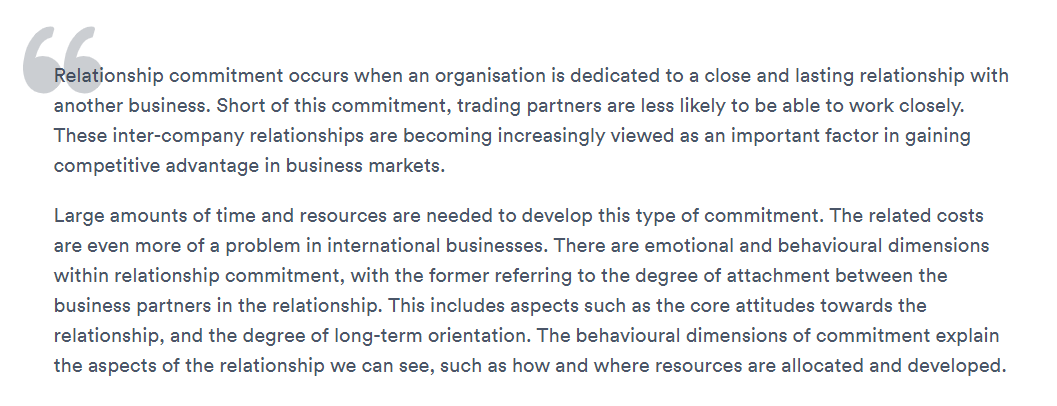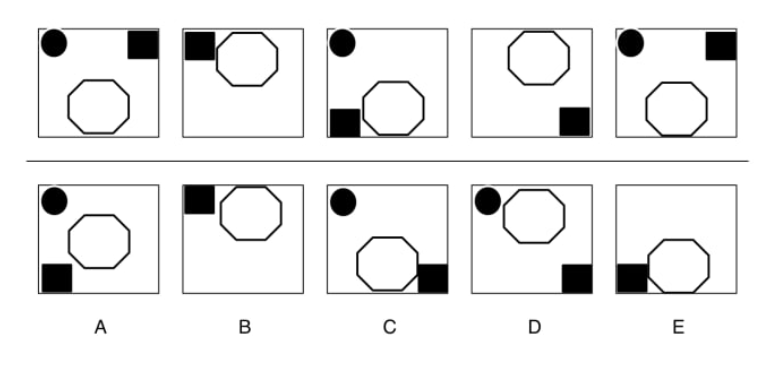What is a Korn Ferry assessment?
The Korn Ferry assessment is a comprehensive battery of tests used by employers for measuring skills and abilities of candidates when hiring.
Korn Ferry tests are divided into two distinctive categories:
- Personality tests: are primarily designed to identify leadership traits such as behaviours, motivations and objectives. These include the leadership potential assessment and the four dimensions personality test.
- Aptitude tests: Aptitude tests (also known as cognitive ability tests) assess candidates on their traits, drivers, competencies, and cognitive skills to determine their suitability for a job position.
Korn Ferry Leadership Assessments
Korn Ferry leadership assessments measure emotional intelligence (EI), strategic thinking, problem-solving and personal traits.
The Four Dimensions of Leadership and Talent (KF4D)
The four dimensions of leadership and talent you will be assessed for are:
- Competencies
- Experiences
- Traits
- Drivers
Korn Ferry personality tests are constructed around these four pillars, and help employers find future leaders. The test itself focuses on leadership and personal behaviours.
Korn Ferry Personality Inventory Test
This is a very specific test that aims to understand how well your personality, motivations, and character match up with the requirements of the role you're applying for. It's a really helpful test for recruiters, employers (and candidates) as it's a great indication of how well suited someone is for the job.
The format consists of statements that you'll need to read, digest, and respond to, from 'completely true' to 'completely untrue. It's important, to be honest when answering the questions.
Korn Ferry Competency Based Assessments
Designed to assess your key competencies, this short test is a quick fire way of getting to know your strengths in a little more depth.
Candidates will be asked to rate how strongly they agree or disagree with a series of statements related to the way they think and act when faced with challenges or problems at work.
It's another way that an employer can try to get to know a pool of candidates and figure out who has the skills and traits that most closely align with what's needed in the role.
Korn Ferry Leadership Potential (KFALP)
All Korn Ferry tests aim to shine a light on those with leadership qualities, but the leadership assessment is a highly targeted test that aims to uncover your leadership style.
The leadership assessment most closely resembles situational judgement tests and personality tests in style. The questions are designed to see how equipped you are to take on a position of leadership.
Korn Ferry E-tray Exercise
Korn Ferry's bespoke e-tray exercises give candidates an insight into the management and prioritisation of tasks they'd be expected to undertake in the role they're applying for.
Just like a typical e-tray exercise, candidates will be asked to use an email inbox simulation to show how adept they are at managing and prioritising different tasks.
Korn Ferry Aptitude Tests
The Korn Ferry aptitude tests are designed to assess a very specific set of skills, whether that's your grasp of numbers and mathematical concepts in the numerical test, or your ability to communicate effectively in the verbal reasoning test.
These tests give employers a chance to analyse your strengths and weaknesses in specific areas.
Employers can select any of these tests to use as part of their recruitment process, to get a better sense of their candidates' strengths and weaknesses.
The tests you might be given are:
- Numerical reasoning
- Verbal reasoning
- Logical reasoning
- Cognitive ability
- Non-verbal reasoning
- E-tray exercises
- Blended assessments
Korn Ferry Numerical Reasoning Test
Numerical reasoning tests are designed to assess your mathematical skills, based on how well you answer questions on everything from fractions and ratios to graphs and data analysis.
Numerical reasoning tests are only set if there's a certain amount of numerical analysis required in the role you're applying for, so it's important to brush up on your skills and practice a few mock tests if this a Korn Ferry assessment you're required to take as part of an application process.
Example numerical reasoning question:
What was the percentage decrease in the production of vehicles by Nissan from 2018 - 2022?
A) 20% B) 33.3% C) 40% D) 50%
Correct answer:
2018 = 30,000 vehicles 2022 = 20,000 vehicles (30-20) / 30 x 100 = B) 33.33%
Korn Ferry Verbal Reasoning Test
Verbal reasoning tests help employers to get a sense of how well you digest information, understand it, and then communicate it effectively. These skills are useful in a huge variety of roles, so it's no surprise it's one of the more commonly set psychometric tests.
In the Korn Ferry verbal reasoning test, you can expect to answer questions on a passage of text you'll read in the test.
No prior knowledge of the subject is needed as you'll answer questions on what's in front of you, but it's important to practice beforehand to get used to the format of the questions, and how to differentiate between fact and inference.
Example verbal reasoning question:
Statement: The passage suggests that it is safer to spread your savings across a range of different investments.
A) True B) False C) Cannot say
Correct answer: B) False - Both emotional and behavioural dimensions are involved
Korn Ferry Logical Reasoning Test
Sometimes referred to as Raven's Matrix, the Korn Ferry logical reasoning test requires candidates to use their logical reasoning skills to analyse a grid and work out what's missing from a range of possible answers.
Logical reasoning tests are always challenging, particularly if you're not familiar with the question format or the specialist thinking required to solve the presented challenges.
Example logical reasoning question:
Which of the boxes comes next in the sequence?
A B C D E
Correct answer: Rule 1: The position of the octagon changes between the top and bottom each time. Rule 2: The circle alternates between being present and absent. Rule 3: The square moves 90 degrees anticlockwise around the square - B)
Korn Ferry Cognitive Ability Test
Designed to assess both your speed and accuracy, Korn Ferry's cognitive ability test examines candidates on their mechanical reasoning and spatial awareness skills.
Used by employers in industries such as architecture and engineering, the tests help employers to hire people with proven abilities to solve problems and challenges quickly and calmly.
Korn Ferry Non-Verbal Reasoning Test (Raven's Matrix)
The Raven's Matrix test is similar to a logical reasoning test in that candidates will need to use their logical reasoning skills to answer non-verbal problems and select the correct multiple-choice answer.
Speed and accuracy are important if you want to succeed at the Raven's Matrix, so it's important to get as much practice as possible by trying our mock tests and questions before the test that counts.
Which Financial Employers Use Korn Ferry Assessments?
Korn Ferry tests are popular with many employers in the financial industry, both for hiring new talent and for monitoring and encouraging progression internally.
When it comes to recruiting new employees, global firms including RBS, Lloyds Bank, Canada Revenue Agency (CRA) and Bank of England use Korn Ferry Assess to get a more detailed analysis of potential new hires, to reduce bias in the hiring process and to better their chances of hiring candidates with longevity.
And when it comes to internal progression, Korn Ferry tests are often used as part of the appraisal process, or to help identify key development opportunities for individuals who want to better themselves and climb the career ladder with their company.
Tips On How to Pass a Korn Korn Ferry Assessments
1) Gather your information
Before you start preparing for a Korn Ferry test, it's best to gather as much information as you can on the tests you'll be tasking, the company and role you're applying for, and anything else that might be of use. Learning about the ethos and beliefs of a company can help you to step into the shoes of the kind of candidate they're looking for.
2) Practice, practice, practice
Taking as many mock tests as you can help you too quickly familiarise yourself with the format and style of the questions you'll be asked. While repeating the tests will help you to build confidence, speed, and accuracy.
3) Think outside the box
Keep your preparation interesting by thinking outside the box. Play game based assessments that require you to solve numerical problems, do puzzles that flex your logical reasoning skills or ask a friend to probe you on a passage of your favourite book to prepare you for the verbal reasoning test.
4) Read everything thoroughly
When it comes to the test itself, it's important to read every question thoroughly and ensure you know how long you have to answer all the questions (this will allow you to work out roughly how much time you can spend on each one).
5) Don't panic
If you don't know the answer to a problem, don't panic. Work out which answers can't be correct to help narrow down your options, or look at the answers before the question to see if looking at the problem from a new perspective helps.












